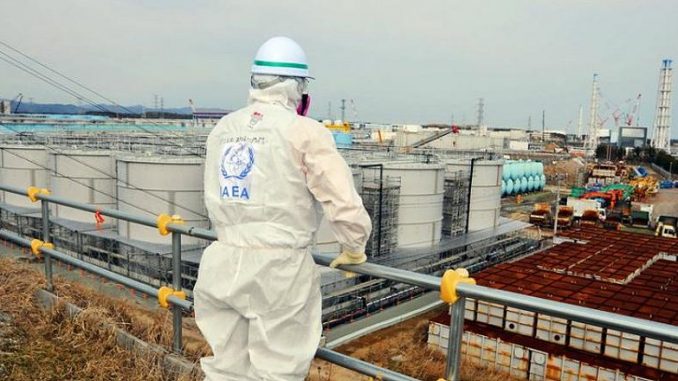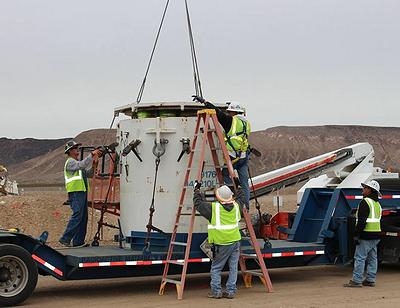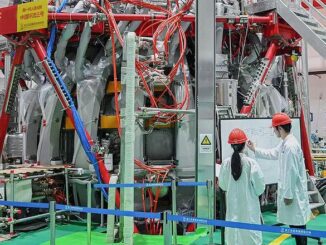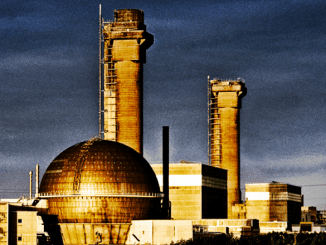
RIO DE JANEIRO, Brazil, May 17, 2021 (ENS) – The 10th International Uranium Film Festival of Rio de Janeiro, the world’s largest film fest about everything nuclear and radioactive, starts streaming online Thursday, May 20, open to all, without charge. It was to have been held in the Cinematheque of Rio de Janeiro’s prestigious Modern Art Museum, MAM Rio, with dozens of filmmakers present, but due to the ongoing Covid-19 epidemic in Brazil this will be the festival’s first online edition.
During the 10 days from May 20 to 30, a total of 34 films from 15 countries, including six Latin America premieres and three World Premieres, will be screened at the Modern Art Museum’s Vimeo platform online and free of charge.
The festival program is a mosaic of films by internationally renowned and award-winning directors such as Peter Greenaway as well as young and rising filmmakers such as Peter Anthony, Brittany Prater and Miguel Silveira. The best films will receive the festival’s trophy.
Though it’s hard to decide with such a wide selection, the festival team indicates three highlights of the event:
- – The Latin American premiere of the documentary “Atomic Cover-up” by U.S. author Greg Mitchell. The film reveals the decades-long U.S. suppression of key footage from Hiroshima and Nagasaki as told by the U.S. military and Japanese teams who shot it. View a two-minute trailer here.
- – The world premiere of the documentary “The Invisible Island” by French filmmaker Keiko Courdy is in Japanese with subtitles in English and French. Waves crash eternally on the shore of Fukushima Daiichi Nuclear Power Plant which experienced a disastrous meltdown in 2011. Next to a facility for radioactive waste burning, children play on the ground, black bags of contaminated soil pile up, while grass grows wild over them. Courdy has been filming every year since 2011. “The film is a story of resilience, failed technology and the transformation of a territory,” says Courdy.
- – “Atomic Gods – Creation Myths of the Bomb” by Adam Jonas Horowitz of Santa Fe, New Mexico, who is known for his awarded documentary “Nuclear Savage: The Islands of secret project 4.1.”
A series of surrealistic, black-comedy short films that reveal for the first time the secret, unknown creation myths of the bomb, “Atomic Gods” is totally different, Horowitz says. He calls his film “a post-nuclear fairy tale,” a “mockumentary” about American theoretical physicist J. Robert Oppenheimer and the birth of the atomic bomb.
The first edition of the annual International Uranium Film Festival took place in May 2011 in Rio de Janeiro. The festival is dedicated to independent films tackling all nuclear issues from uranium mining to atomic bombs and nuclear waste.
During the last 10 years, Uranium Film Festivals have been also held in other countries and cities such as Berlin, New Delhi, New York and Los Angeles. Since its debut in Hollywood in 2016, the Uranium Film Festival has been also called The Atomic Age Cinema Fest.
“The Uranium Film Festival is the only film festival dedicated exclusively to the topic of nuclear power and radioactivity,” says Klaus Mindrup, member of the German Bundestag and the Committee on Environment, Nature Conservation and Nuclear Safety.
“The festival makes an invaluable contribution to the education about nuclear energy and its radiant consequences,” Mindrup said. “Many people are addressed through the medium of film. At the same time, facts can be made tangible in a simple and impressive way. The topic burns itself into the viewer visually and has a lasting effect.”
The 10th International Uranium Film Festival of Rio de Janeiro is supported by Rio’s Museum of Modern Art Cinematheque and Cachaça Magnífica de Faria.
Click here for more information about the festival.
2021 Festival program and film links:
https://uraniumfilmfestival.org/en/rio-2021
https://uraniumfilmfestival.org/en/lives-of-the-festival-2021
https://uraniumfilmfestival.org/en/about-the-filmmakers-of-the-festival-2021
Featured image: An inspector from the Internation Atomic Energy Agency, IAEA, looks out towards the Pacific Ocean over the damaged Fukushima Daiichi Nuclear Power Station, Fukushima, Japan. February 11, 2015 (Photo by Susanna Loof / IAEA)



